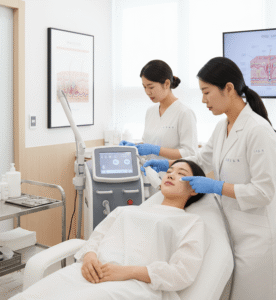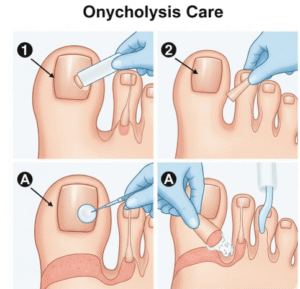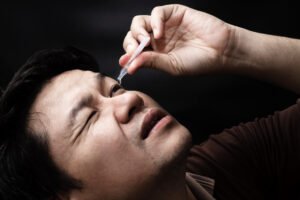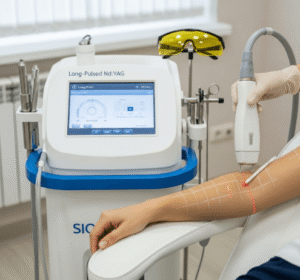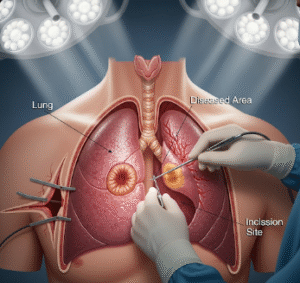Overview
Jeavons Syndrome, also known as Epilepsy with Eyelid Myoclonia (EEM), is a rare form of generalized epilepsy characterized by rapid, involuntary eyelid jerks (myoclonia) often triggered by visual stimuli, such as flashing lights or patterns. While it typically begins in childhood or adolescence, early diagnosis and treatment are essential to prevent seizure progression and improve quality of life. South Korea offers advanced neurology care, including specialized epilepsy centers for diagnosis and management.
What is Jeavons Syndrome?
Jeavons Syndrome is a type of epilepsy in which patients experience brief, repetitive eyelid jerks accompanied by upward eye movement and, sometimes, generalized seizures. The condition is often triggered by light stimuli, hyperventilation, or fatigue. While cognitive function is usually preserved, uncontrolled seizures can impact daily activities and learning in children and adolescents.
Symptoms
- Rapid eyelid jerking (myoclonia)
- Eye-rolling upward during eyelid movements
- Brief loss of awareness (absence seizures)
- Sensitivity to flashing lights or sunlight (photosensitivity)
- Generalized tonic-clonic seizures in some cases
- Difficulty concentrating or school performance issues in children
Causes
- Genetic predisposition (polygenic inheritance is suspected)
- Abnormal brain excitability in the cortex and thalamus
- Environmental triggers such as flickering lights, screen exposure, or sleep deprivation
Risk Factors
- Onset typically between ages 6–16
- Family history of epilepsy or photosensitive seizures
- High exposure to visual stimuli (TV, computers, video games)
- Sleep deprivation or irregular sleep patterns
Complications
- Injuries during seizures
- Academic or social challenges due to frequent seizures
- Psychological distress, anxiety, or depression
- Progression to more severe generalized seizures if untreated
Prevention
- Avoid known seizure triggers, especially flashing lights or patterns
- Maintain regular sleep schedules and avoid sleep deprivation
- Use protective eyewear or screen filters to reduce photosensitivity
- Regular follow-ups with a neurologist to monitor seizure activity
Treatment Options in Korea
South Korea provides comprehensive care for patients with Jeavons Syndrome:
- Diagnosis
- Electroencephalogram (EEG) to detect characteristic epileptic discharges
- Video-EEG monitoring to correlate eyelid myoclonia with seizure activity
- Genetic testing if a hereditary component is suspected
- Medication
- Valproate is the most commonly prescribed first-line antiepileptic drug
- Other options include levetiracetam, clonazepam, or lamotrigine for adjunct therapy
- Medications are tailored to seizure type and patient age
- Lifestyle Management
- Limiting exposure to flashing lights or digital screens
- Adequate sleep and stress reduction
- Protective measures to prevent injuries during seizures
- Specialized Epilepsy Centers
- Seoul National University Hospital Epilepsy Center
- Samsung Medical Center Epilepsy Clinic
- Asan Medical Center Epilepsy Program
- Offer multidisciplinary care including neurologists, neurophysiologists, and rehabilitation specialists
- Advanced Therapies
- In refractory cases, patients may be evaluated for ketogenic diet therapy or neuromodulation (e.g., vagus nerve stimulation)




